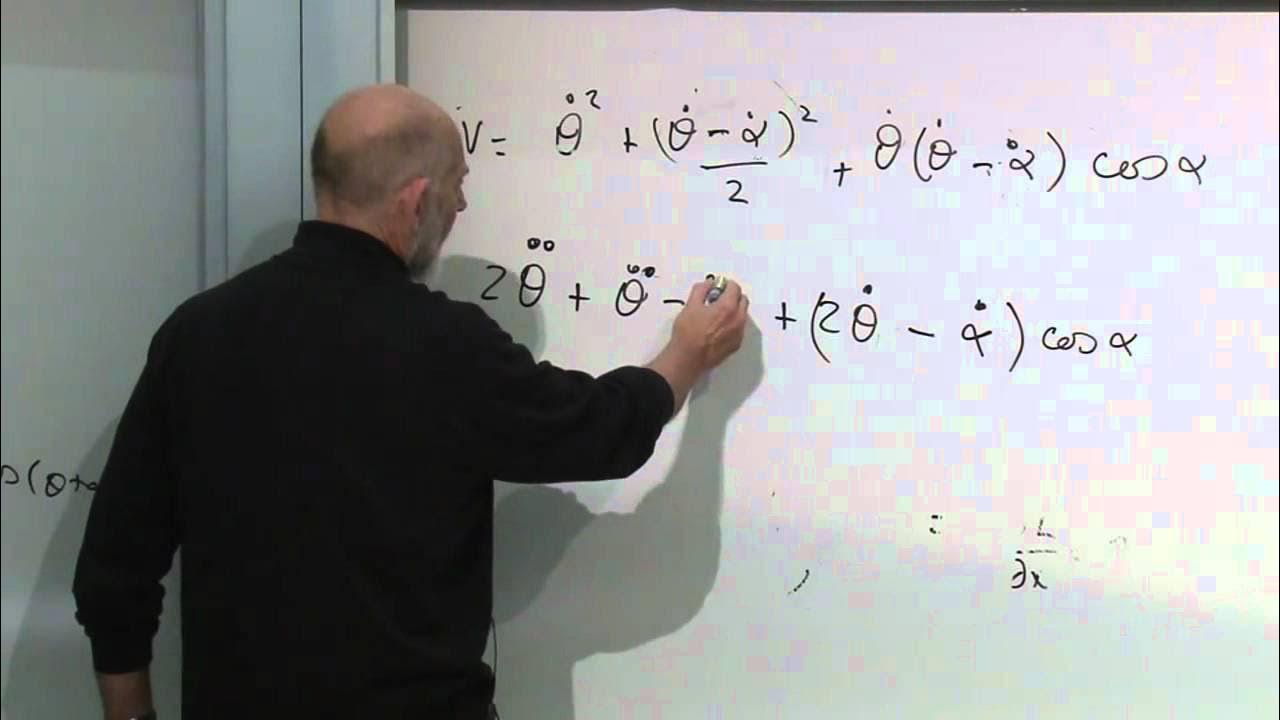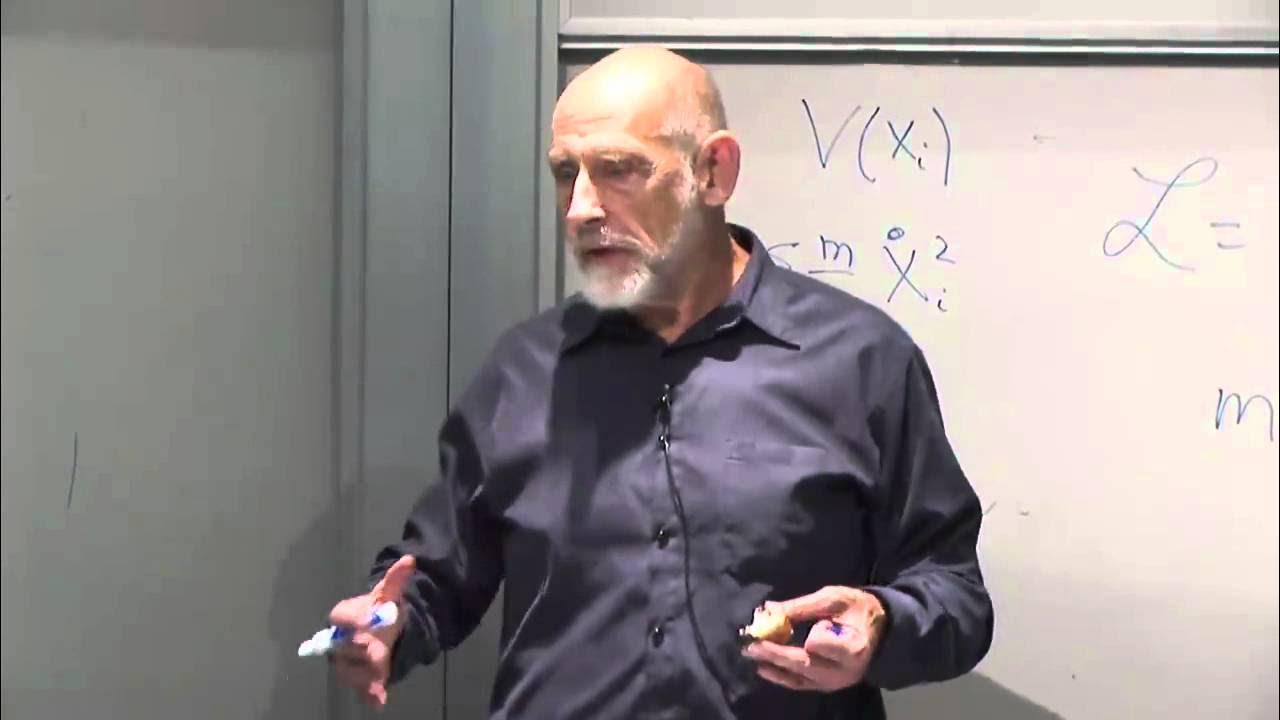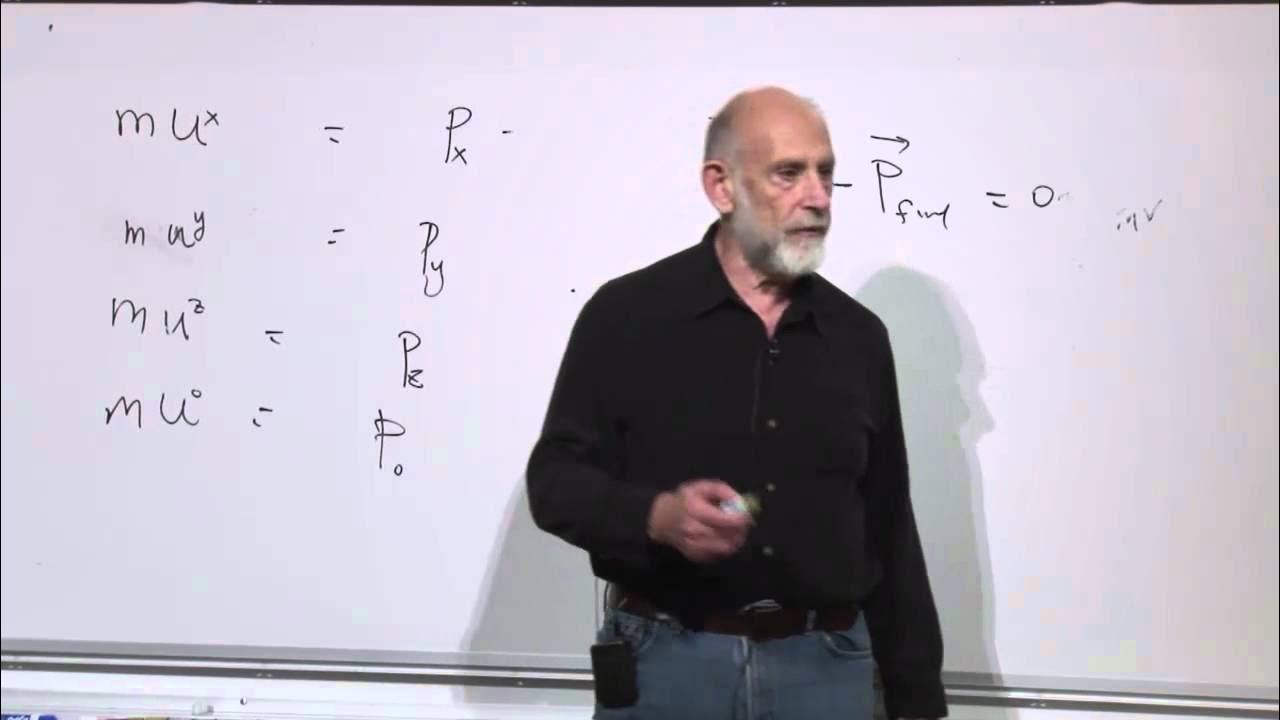Theoretical Physicists having fun & cracking jokes
TLDRThe transcript captures a discussion on the nature of gravity, thermodynamics, and complexity, with a humorous exchange about needing an 'eraser' and quickly dismissing the idea of a 'hooker.' It touches on the CPD theorem and the history of Cornell's Messenger Lecture, established in 1924. The conversation also includes a debate on the relevance of the Lagrangian and Hamiltonian approaches in physics, with a nod to Landau's famous statement about the 'death' of the Hamiltonian, suggesting that what can 'die' twice might be considered immortal.
Takeaways
- 🧠 Misunderstandings can occur in communication, as seen in the initial dialogue.
- ✏️ The term 'eraser' is used metaphorically, possibly referring to someone or something that corrects or modifies information.
- 🎭 There's a playful banter about needing a 'hooker,' which is quickly retracted, indicating a casual or humorous tone.
- 📈 The speaker discusses the concept of 'average statements' and associates them with thermodynamics and complexity, suggesting a scientific or theoretical framework.
- 😄 Laughter is present, indicating a light-hearted or relaxed atmosphere during the discussion.
- 📚 The CPD theorem is mentioned as significant, distinguishing it from mere advice and implying its importance in the context of the discussion.
- 🎓 The Cornell Messenger Lecture is referenced, providing context for the setting and the series of lectures being discussed.
- 👴 Landau's statement about the 'death' of the Lagrangian is mentioned, along with a conjecture about the immortality of concepts that can 'die twice'.
- 📖 The conversation shifts to the Hamiltonian, with a discussion on its relevance and the possibility of its omnipresence.
- 🙏 The speaker pleads the fifth, suggesting a refusal or an inability to answer the question about the Hamiltonian directly.
Q & A
What does the speaker initially ask for?
-The speaker initially asks for an eraser.
Who is Ahmed in the context of the script?
-Ahmed is likely a person the speaker is addressing directly, possibly in a humorous or metaphorical sense, as the speaker asks Ahmed to be their 'eraser'.
What does the speaker mean by 'average statement'?
-The speaker refers to an 'average statement' as a generalization or a broad claim that can be applied to a concept, in this case, gravity.
What are the two types of statements the speaker mentions in relation to gravity?
-The speaker mentions that gravity can be described either as a thermodynamic statement or a complexity statement.
What is the CPD theorem mentioned in the script?
-The CPD theorem is not explicitly defined in the script, but it is mentioned as a theorem, suggesting it is a concept or principle discussed in the lecture series.
What is the significance of the Cornell Messenger Lecture mentioned in the script?
-The Cornell Messenger Lecture is a series established in 1924, and the speaker is likely part of this lecture series, indicating the context of the discussion.
What did Landau say about the Lagrangian and Hamiltonian?
-Landau initially claimed that the Lagrangian was dead, and later suggested that the Hamiltonian should also be 'buried with all the honors it deserves', although he specifically mentioned the Hamiltonian in the context of strong interactions.
What is the speaker's conjecture about concepts that can 'die twice'?
-The speaker humorously conjectures that anything that can 'die twice', such as the Lagrangian according to Landau, is immortal.
What does the speaker suggest about the Hamiltonian?
-The speaker raises a question about the Hamiltonian, wondering if there is always a Hamiltonian in the context of the discussion.
How does the speaker conclude their thoughts on the Hamiltonian?
-The speaker concludes their thoughts on the Hamiltonian by saying 'I plead the fifth', a phrase often used to avoid incriminating oneself or to refuse to answer a question.
What is the overall theme of the script?
-The overall theme of the script revolves around discussions on fundamental concepts in physics, such as gravity, and the evolution of theoretical frameworks, with references to notable physicists and their viewpoints.
Outlines
🤔 Misunderstandings and Theoretical Concepts
The paragraph begins with a humorous misunderstanding, where the speaker attempts to clarify their needs, first asking for an eraser and then quickly correcting themselves. The conversation shifts to more profound topics, discussing the nature of gravity as an average statement and touching upon thermodynamic and complexity aspects. The speaker also mentions the CPD theorem, emphasizing its significance beyond mere advice. The paragraph concludes with a reflection on the status of Lagrangian and Hamiltonian in theoretical physics, referencing Landau's views and the immortality of concepts that can 'die twice'.
Mindmap
Keywords
💡eraser
💡average statement
💡CPD theorem
💡Cornell's messenger lecture
💡Lagrangian
💡Hamiltonian
💡thermodynamic statement
💡complexity statement
💡CPT theorem
💡Leonardo de suskind
💡Immortal
Highlights
The need for an eraser is mentioned, possibly metaphorically.
Ahmed is asked to be an 'eraser', indicating a role or responsibility.
The speaker clarifies that their previous statement was misunderstood.
A humorous moment where the speaker quickly retracts a statement about needing a 'hooker'.
The concept of 'average statement' is introduced, relating to gravity.
The speaker discusses the nature of gravity as either a thermodynamic or complexity statement.
Laughter is mentioned, possibly indicating a light-hearted or humorous atmosphere.
The CPD theorem is referenced as a theorem, not just advice.
The CPA theorem is mentioned, though it seems to be a misspoken version of the CPD theorem.
The Cornell Messenger Lecture series is introduced, established in 1924.
Leonardo de suskind is thanked, possibly for his contributions or presence.
The speaker reflects on Landau's statement that 'Lagrangian is dead' and suggests that anything that can 'die' twice is immortal.
A discussion on the Hamiltonian, not the Lagrangian, is mentioned, with a historical reference to Landau.
The speaker recalls Landau's quote about burying the Hamiltonian 'with all the honors it deserves'.
A question about the Hamiltonian is raised, questioning its omnipresence.
The speaker ends with a reference to 'pleading the fifth', possibly indicating a refusal to answer or a humorous conclusion.
Transcripts
5.0 / 5 (0 votes)
Thanks for rating:





